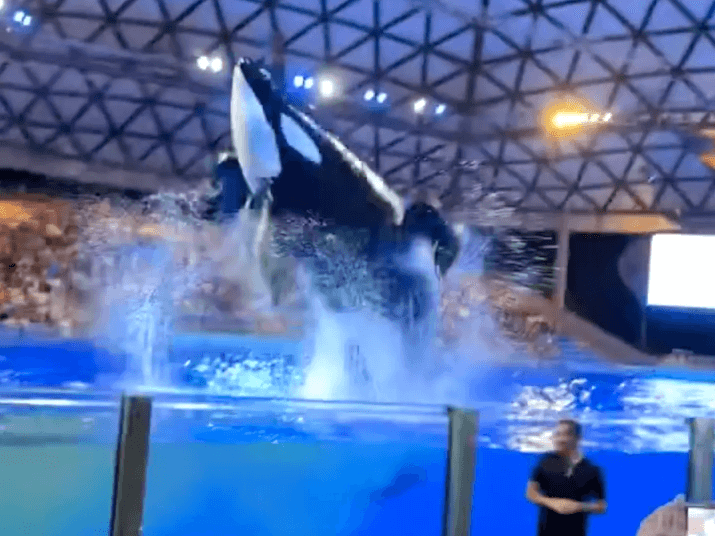Visitors at SeaWorld San Antonio recently experienced an unpleasant surprise during an orca performance when a killer whale defecated in the water and subsequently splashed the fecal matter onto the crowd. The incident occurred during a live orca show in the park’s splash zone, where guests expect to get wet—but not like this.

A viral video captured the moment when the orca, after defecating near the surface of the water, made a large leap and splashed into the pool, propelling both water and feces onto unsuspecting audience members. Samantha King, who was among those sprayed, described the scene: “It was shocking. We expected to get wet sitting so close, but not like that. It smelled awful, and people were gagging.”
The aftermath left many visibly disgusted, with some people recoiling while others laughed at the bizarre nature of the event. Several children were seen in the video looking horrified. Following the incident, SeaWorld staff directed affected guests to a decontamination area where they were provided with soap, towels, and bottled water.
Whale defecates at sea world San Antonio, crowd gets splashed immediately after pic.twitter.com/WweTpRa0ML
— Whoa, That's Interesting! (@dt_interesting) October 21, 2024
The video sparked diverse reactions on social media, with some users joking about the situation and others expressing concern about the welfare of the orca. One user tweeted, “The whale knows. It’s trying to tell everyone that it’s tired of jumping for everyone.” Another added, “Orcas are incredibly smart. It knew exactly what it did.”
SeaWorld responded to the incident by issuing a statement: “We regret this unfortunate event and are taking every step to ensure the safety and comfort of our guests. Our team followed established protocols to minimize health risks and will review our procedures to prevent this from happening again.”
SeaWorld San Antonio has faced controversy in the past regarding the captivity of orcas, announcing in 2016 that it would phase out its orca breeding programs. Despite this, five orcas remain at the park, with most having been born in captivity.

